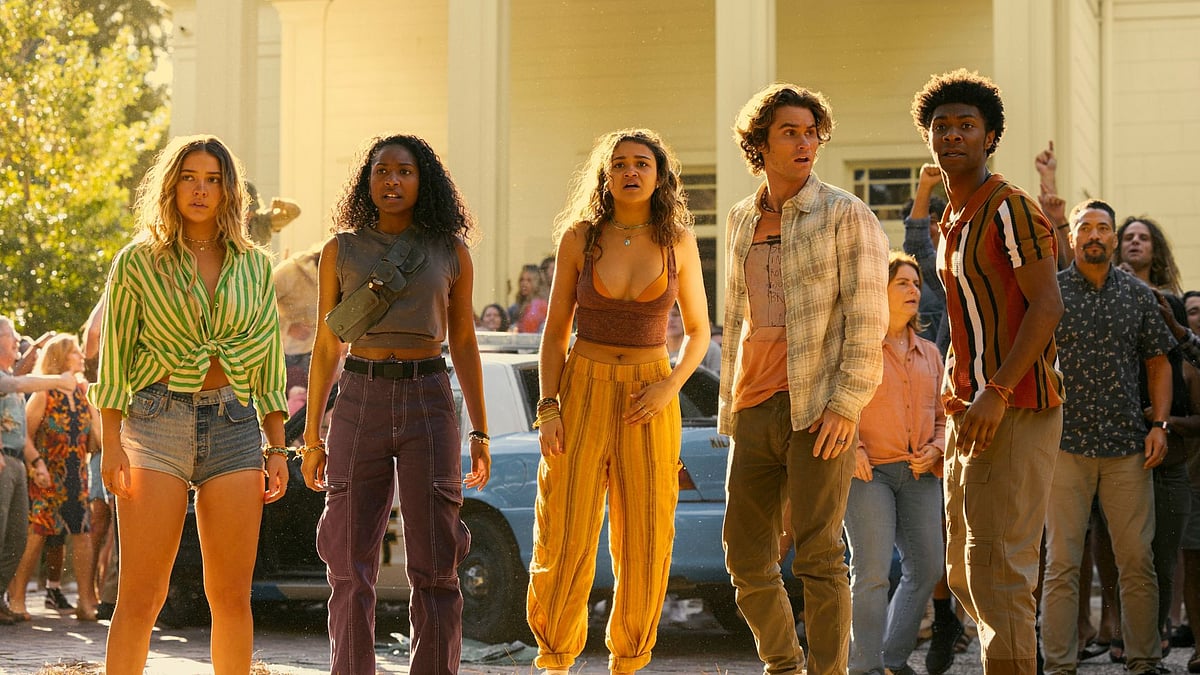Bhopal (Madhya Pradesh): Former police commissioner of Delhi, Neeraj Kumar doesn’t think ‘political pressure’ is a taboo in the system or unwarranted as we all are living in a political system. He, however, says, it all depends on the officer how he takes decisions on such matters.
Writer of a book ‘Khakhi Files’ and a web series ‘Delhi Crimes’ Neeraj Kumar who was in the city to participate in the Bhopal Literature and Arts Festival said Nirbhya incident was a matter of shame for all whether it was police or society.
Excerpts of an interview with him:
Police commissionerate system has been introduced recently in two cities of Madhya Pradesh. How do you compare the old system with the new one?
The police commissionerate system has certain distinct advantages. For one, it unifies operational control. After all, the decision on whether a law and order situation warrants use of tear gas or water canon or lathi-charge should be left to the police officer present on the spot. Under the old system, the magistrates took this decision. There were times when the executive magistrates left the trouble spot and the cops had to first locate them and then seek orders from them. The responsibility of controlling a situation was of the policemen and the decisions on how to do it lay with the magistrates. So, why not give powers to the man on the spot? The older system was a legacy of the British Raj.
But don’t you think all such powers vested in police will lead to violations of human rights?
Just tell me if there were no violations when magistrate sahibs took the decisions.
During your career in the IPS, did you face political pressure?
What is wrong with political pressure? Ours is a democratic system and the people’s representatives have every right to approach police officers and make complaints and demands. If the complaints are genuine, they should be accepted. If they are not, the people’s representatives should be told that this cannot be done. It is as simple as that.
The Nirbhaya case was a turning point in the history of policing in India. After it, laws were amended and many new laws were promulgated. Has this improved the safety of women?
New laws, stricter laws, stronger police - they cannot end crimes. But they are beneficial in one sense. For instance, earlier there was no law under which we could book a person for stalking or for sexual harassment at workplace or for voyeurism. Now, we can. That acts as a deterrent. But no one should think that crimes would vanish because of new laws.
What about corruption in the police force?
It is there. If I say that there is no corruption in the police force, I would be lying. Police are also a part of society. But everyone will have to come forward to end it - the police brass, media, society, government to curb the menace.
You retired in 2012. Since then, what changes have come about in policing?
Frankly speaking, I am not in touch with police officers now. But, yes, I know the police have become more technology-oriented. And that is good.
There are persistent complaints that FIRs are not registered?
The solution lies in technology. Now, you can lodge an FIR online as happens in Delhi. If your car is stolen, you can file an FIR without visiting the police station. And it is automatically registered.
What do you say on cops being overworked? They don’t even get weekly off.
Yes. That is true. We need to rationalise the deployment of personnel. Cops deployed in protecting VVIPs and deployed at homes of senior bosses should be posted at police stations. That would ease the situation.
How can policing improve? Will reforms help?
Policemen need to have regular interaction with the common public. I see a gap between the two sides. And to bridge the gap it’s the police which will have to come forward. I had introduced a system under which senior officers held regular dialogues with the common people. As for reforms, there is always a scope for them. The decision-makers have to take a call on them.
What do you say on extra-judicial killings? Is this outcome of the weaknesses in our criminal justice system?
That is true. But extra-judicial killings or encounters should not happen.











